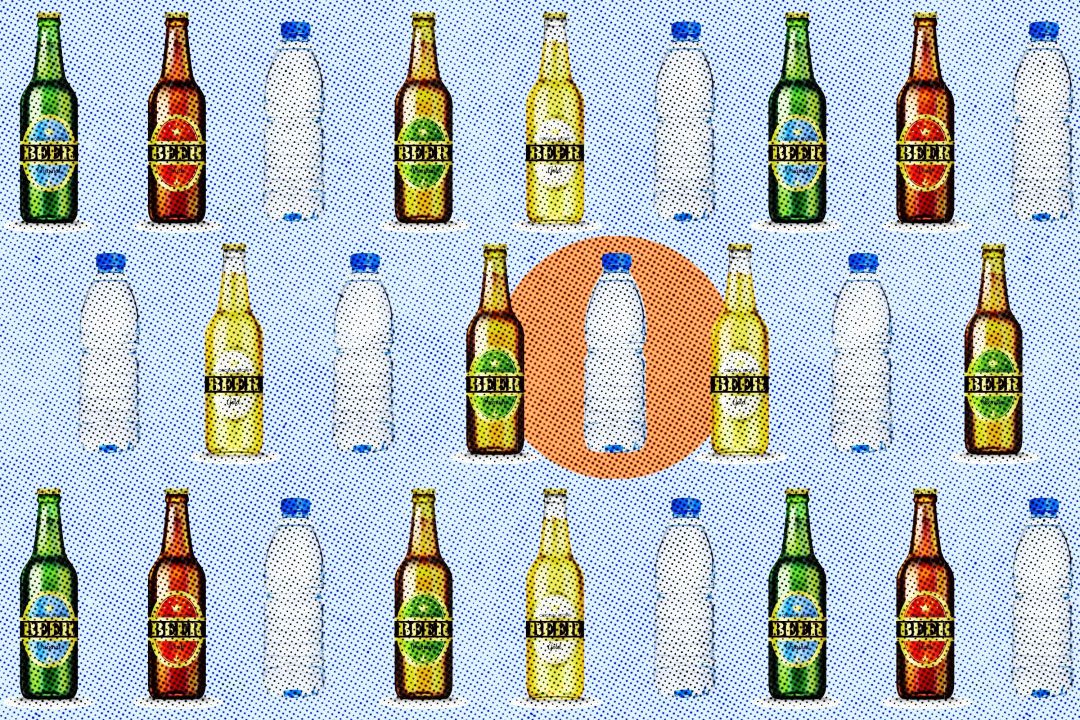Are You 'Sober Curious'?

Image: Kari Perrin
Do you like to have a glass of wine after work? How about a beer hanging out on the weekend with friends? For many of us, alcohol is a major part of our social lives. But for some, the idea of limiting alcohol content and reframing the stigma around not drinking is appealing. This trend, which has become increasingly popular, is called "sober curiosity."
In the "sober curiosity" movement, people experiment with sobriety for mental and physical health reasons. This also helps break a stigma long associated with sobriety—i.e., you don't have to be an alcoholic to be sober.
Alcoholism affects one in eight adults Americans every year, and for most, sobriety is the only option to overcome the disorder. You don't have to be struggling with addiction, however, to become curious about sobriety.
Functional medicine practitioner Lauren Grace at Sarasota Integrative Health weighs in on the trend.
How did the sober curious movement start?
It all began with a challenge called "Dry January" in 2014, trademarked by the Alcohol Concern charity in the United Kingdom. Participants would take a month-long break from alcohol.
Now, the millennial generation—ages 26 to 41—is sometimes referred to as 'generation sober' because of its sober-curious culture. The generation under that, Gen Z, drinks even less. Mocktails and non-alcoholic beers and kombuchas are extremely popular now, providing a chance for people to socialize over a drink without the potential harmful effects.
How does being sober, even for a short time, benefit someone?
"Alcohol like red wine can raise your estrogen levels, which can cause inflammation and, in the long-term, possibly increase your cancer risk," says Grace. "Alcohol in excessive amounts can also increase fungus called candida in your gut, which can cause bloating, digestive issues and depression."
Experts are also quick to point out that what matters even more than what you're drinking is how much you're drinking.
Reducing the amount of alcohol you drink can also improve focus and memory, sleep, energy and weight management. You may also notice healthier skin and improved mental health, including a feeling of overall wellbeing, relief from depression and anxiety, and increased confidence.
If you are going to drink, how can we reduce these negative effects?
Grace suggest limiting alcohol consumption to once per week, or an amount that is sustainable for you.
"Good-quality tequila is the 'healthiest' alcohol for you, without extra sugars and add-ins," says Grace. "So, if you are going to drink, tequila is the easiest for the body to digest."
If you're imbibing, she also recommends drinking an electrolyte packet that you can find at any drugstore and mixing into water. Taking a B12 supplement will also help reduce hangover effects.
How can you incorporate sober curiosity into your life?
Set a time-frame for not drinking. This could be two weeks, one month or even a year. Record the positive changes not drinking makes in your daily life.
Find social activities that don't involve drinking. Consider inviting friends for a walk, a trip to the beach or park or restaurant.
If you are in a setting where you'd normally drink, stop and weigh out your options. Maybe have one drink instead of your usual three—or let others know that you are participating in a sobriety challenge for your health.
Find a like-minded group of people. There are many sober social groups that gather online and in-person, and they're not necessarily for recovering addicts. Try a new sober-focused fitness class or meditation. Pick up a musical instrument or learn a new language.
Try non-alcoholic alternatives. The rise in popularity of non-alcoholic beers, spirits and mocktails make it fun to try out new drinks and local spots without alcohol involved.



